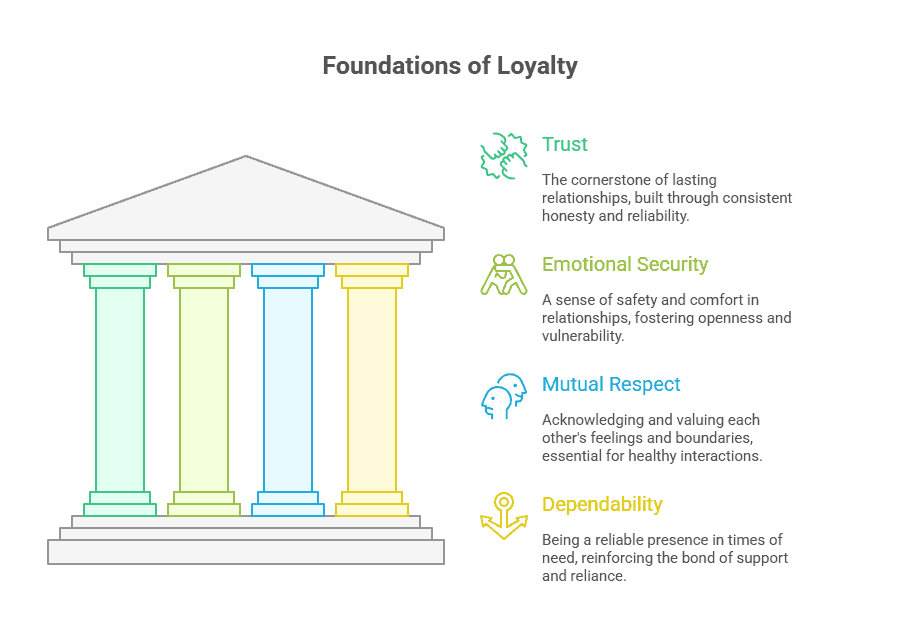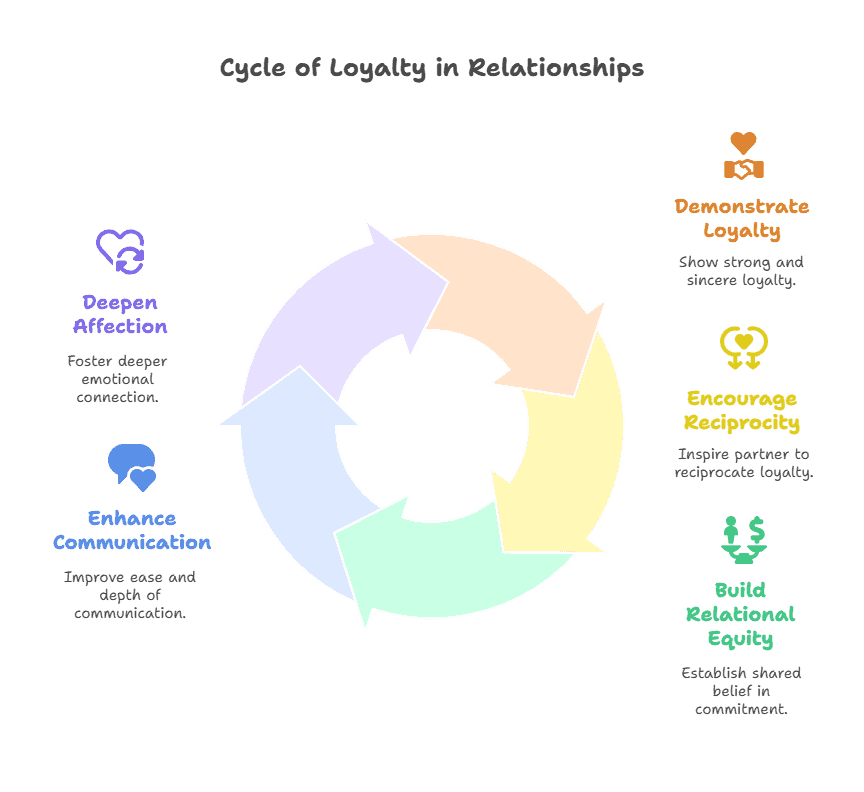Being loyal is the essence of every important relationship; it changes love into trust and trust into interaction for the whole life. It consists of sharing the hard times, telling the truth even when it’s hard, and showing through your deeds that you are the one a person can depend on. Emotional security and mutual respect are created by loyalty, no matter if it’s a partner, friend, or colleague. To put it another way, relationships without loyalty are like Wi-Fi without the internet—only connected by name, but completely nonfunctioning. This is precisely why being loyal is important factor in turning relationships into lasting and satisfying ones.

What Loyalty Really Means (and What It Doesn’t)
Loyalty is generally interpreted by most people as ‘not cheating’ or ‘being faithful,’ and yet it is much more than that. Loyalty can be seen as an emotional attachment—it means supporting the other person when life is difficult and not easy. It comprises love and respect that do not vary, upholding promises and trusts, speaking well of the other and supporting them even when they are not present, and being open in communication instead of resorting to silence. Simply put, loyalty is a daily, small gesture of love—it’s about how you behave toward your partner when nobody is around and how you stick with them when all others leave.
The Real Reasons Why Loyalty Matters
1. It Builds Unbreakable Trust
Trust is a delicate thing—it can be constructed for years and destroyed in a moment. Loyalty is the benefactor that supports the union. When your significant other is aware that you will support them no matter what, even if the whole world is against them, they will feel relaxed in the relationship. They will be more honest with you, tell you their secrets, and even show their love more openly.
On the other hand, unfaithfulness in different forms—emotional, verbal, or physical—gives rise to fissures that might require a long time to heal. Thus, if you are questioning the significance of loyalty, bear in mind that it is the base that every relationship rests upon, the height of which is determined by loyalty.
2. It Creates Emotional Security
Loyalty makes a relationship feel like “home.” When you are sure that a person will not walk away just because there is a challenge, you eliminate fear from your life. You can expose your true self without the concern of being either judged or substituted.
That sense of security leads to a healthier emotional space where both partners can grow. Loyalty says, “I’m here. Not just for the good selfies, but for the messy kitchen arguments too.”
3. It Strengthens Commitment
Loyalty is what keeps couples together when the butterflies fade and real life begins. It’s easy to stay close when everything’s going well—but loyalty shows its true value during the storms.
Consider it as a policy for relational problems. Even if the difficult factors like stress, distance or misunderstandings come into the picture, loyalty will be the constant force that pulls both partners together. It will not make you forget that love is not only an emotion but a decision you take every day.
4. It Encourages Growth Instead of Comparison
Being loyal means that you are not just giving your time and energy to your partner but also to the relationship. Rather than asking yourself, “Is there another person who is more suitable for me?” you are asking, “What can we do to make our relationship better?”
Loyalty creates a bond of cooperation between the partners. It permits both to grow not only as individuals but also as a couple, which eventually counts for more profound emotional understanding and common goals.
And let’s be honest—growth together is a lot more fun than starting over with someone new every few months.
5. It Inspires Reciprocity

Contagion is one of the characteristics of loyalty. If you are strong and sincere in your loyalty, it will, in effect, encourage your partner to be the same. This is how a relationship based on loyalty works—it is a cycle of mutual support instead of being a contest of who has given more.
Over time, this builds what therapists call “relational equity”—the shared belief that both partners are fully invested in making the relationship work. That belief makes forgiveness easier, communication smoother, and affection deeper.
When Loyalty Is Tested
On social media, relationships can seem absolutely okay, but in fact, they are not so easygoing. Issues come with the territory, and sometimes, it will be more difficult to stay faithful than to end a relationship. It will be then when loyalty transforms from a quality into a skill—a skill that you intentionally cultivate.
Among the various causes that can weaken loyalty, misunderstandings, financial problems, and situations beyond the couple’s control can be mentioned. However, the pairs that endure these trials without losing trust in each other turn out to be experienced and grown-up persons.
In fact, loyal couples often say that the hardest times brought them closer together—because surviving them proved their bond was real, not situational.
Building Loyalty in Everyday Life
Be Consistent
Don’t change your treatment of your partner based on your mood. Reliability builds emotional safety.
Communicate Honestly
Hiding emotions or problems might seem easier short term, but transparency builds long-term trust.
Keep Promises
If you say you’ll do something, follow through. Loyalty isn’t about big gestures—it’s built on small, repeated acts of integrity.
Respect Boundaries
Being loyal also means respecting personal space and individuality. Healthy loyalty is about choice, not control.
Be There When It’s Hard
It’s easy to celebrate successes, but loyalty shines when you sit beside your partner through failures and fears.
Faith and Loyalty: A Deeper Connection
Loyalty in Islam—and in numerous spiritual traditions—represents not merely a moral quality but rather a divine obligation. It is an indication of faithfulness, tolerance, and kindness. The Islamic principle that loyalty towards one’s partner equals fidelity to God’s commands, since it celebrates trust and love in their hallowed form, is a big one.
A truly faith-based perspective views loyalty as being about servitude, empathy, and forgiveness. Perfection is just not essential; loyalty is.
What This Means for You
If you’re struggling with loyalty issues or trust wounds, professional support can help you rebuild. At Inner Peace Therapies, we understand how faith and culture shape relationships. For Muslim couples, our Islamic Couples Therapy provides a safe and empathetic space to reconnect spiritually and emotionally.
Culturally sensitive Muslim marriage counselling offered by us helps partners to recognise negative patterns, heal emotional distance and through compassion and understanding, restore loyalty. Couples who learn to turn toward each other can then be able to face challenges like communication gaps, infidelity or family stress—and thereby, rediscover the peace that true loyalty brings.
So that in the end, being loyal is important; it is not just about commitment but about forging a bond to be rooted in love, respect, and faith.





